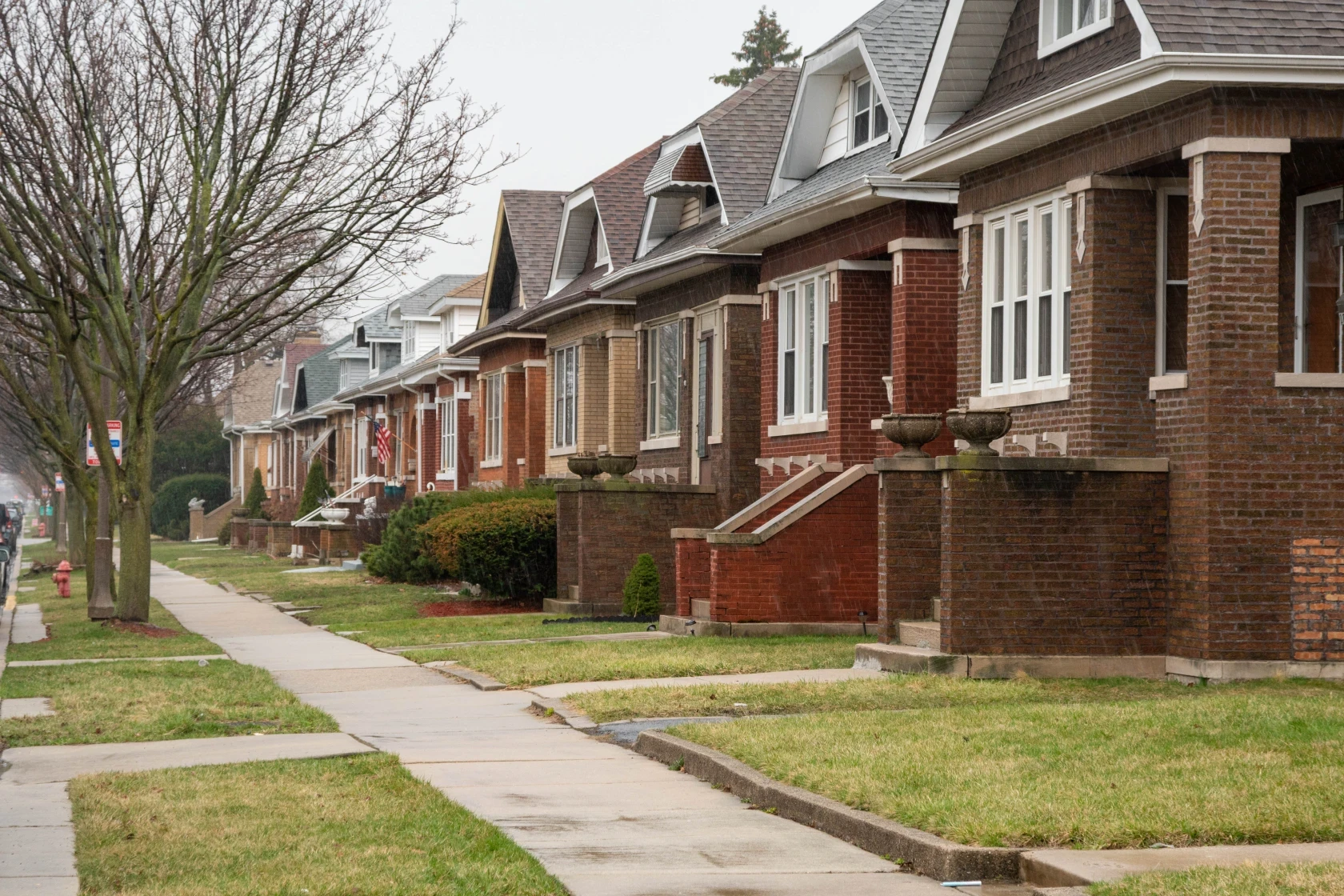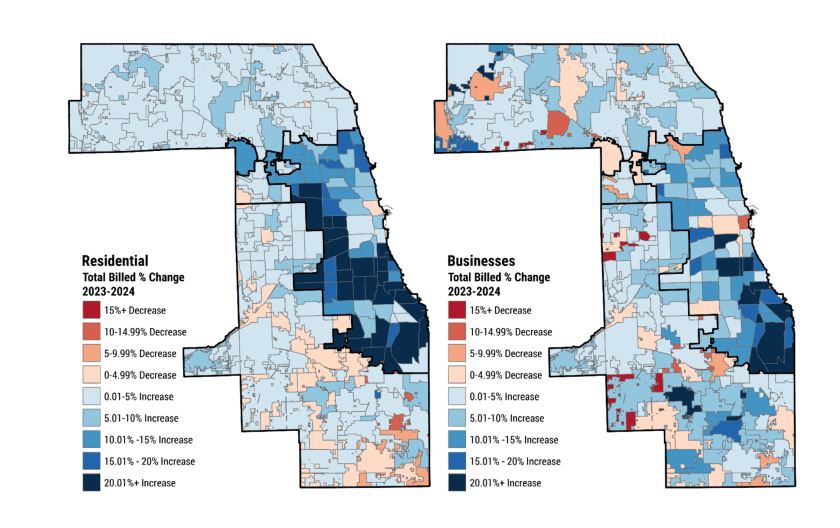Legal
Real Estate Closing Process in Illinois: Complete Buyer's Timeline
Passionate writer sharing insights, expertise, and knowledge on various topics to inspire and inform readers worldwide.

Navigating the real estate closing process in Illinois can feel overwhelming, especially for first-time homebuyers in Chicago's suburbs like Palos Heights, Orland Park, Hinsdale, and Oak Brook. Understanding each step of the Illinois home closing timeline helps you prepare for what's ahead and avoid costly delays that could jeopardize your purchase.
The typical Illinois real estate closing process takes 30-45 days from contract acceptance to closing day, though luxury properties in areas like Hinsdale and Oak Brook may require additional time for complex inspections and appraisals. Here's your complete step-by-step guide to successfully closing on your Illinois home.
Days 1-3: Contract Acceptance and Initial Steps
Contract Execution
Once your offer is accepted, you'll sign the Illinois Association of Realtors Multi-Board Residential Real Estate Contract. This legally binding document establishes your purchase terms, contingency periods, and closing timeline. Illinois law requires specific contract language that differs from other states, making professional legal review essential.
Attorney Engagement
Illinois is an attorney state for real estate transactions, meaning lawyers typically handle closings rather than title companies alone. Contact a qualified real estate attorney immediately after contract acceptance to begin the legal review process. Your attorney will examine the contract terms, identify potential issues, and coordinate with all parties throughout the transaction.
Earnest Money Deposit
Submit your earnest money deposit to the designated escrow agent, typically your attorney or the listing agent's firm. In competitive Chicago suburb markets, earnest money often ranges from 1-3% of the purchase price, demonstrating your serious intent to complete the purchase.
Days 4-10: Due Diligence Period Begins
Home Inspection Scheduling
Schedule your professional home inspection within the timeframe specified in your contract, typically 5-7 business days. Chicago area properties, especially older homes in established suburbs like Willowbrook and Bridgeview, may require specialized inspections for lead paint, asbestos, or structural concerns.
Attorney Review Period
Illinois contracts include a standard attorney review period, usually 5 business days, during which your lawyer can request modifications or cancel the contract for any reason. This period protects buyers from unfavorable contract terms and ensures compliance with Illinois real estate law.
Title Commitment Review
Your attorney will order and review the preliminary title commitment, identifying any liens, easements, or title defects that need resolution before closing. Properties in Cook County and DuPage County may have complex title histories requiring additional research and clearance.
Days 7-14: Inspection and Appraisal Phase
Professional Inspections
Complete all contracted inspections, including general home inspection, pest inspection, and any specialized evaluations. In Illinois, buyers typically have 5-7 days to complete inspections and request repairs or negotiate credits for identified issues.
Inspection Negotiations
Work with your attorney to review inspection reports and negotiate repair requests with the seller. Illinois law allows buyers to withdraw from the contract if inspection issues cannot be satisfactorily resolved, protecting your earnest money deposit.
Mortgage Application Processing
Your lender will order the property appraisal and continue processing your loan application. Illinois properties must meet specific appraisal requirements, and any valuation issues could affect your financing timeline.
Days 15-25: Documentation and Verification
Loan Processing Milestones
Stay in close contact with your lender to provide any additional documentation requested for your mortgage approval. Illinois lending regulations require specific disclosures and verification procedures that can extend processing times if not handled promptly.
Property Survey Review
Review the property survey to confirm boundary lines, easements, and any encroachments. Illinois law requires accurate surveys for most transactions, and any discrepancies must be resolved before closing.
Homeowners Insurance
Secure homeowners insurance with coverage meeting your lender's requirements. Illinois properties may need specific coverage for weather-related risks common in the Chicago area, including wind and hail damage.
Final Title Work
Your attorney will work with the title company to clear any outstanding title issues and prepare for closing. This includes obtaining updated title searches, clearing any new liens, and coordinating payoffs of existing mortgages.
Days 20-28: Pre-Closing Preparations
Closing Disclosure Review
Federal law requires lenders to provide the Closing Disclosure at least three business days before closing. Your attorney will review this document to verify all fees, loan terms, and closing costs match your expectations and contracted terms.
Final Walkthrough Scheduling
Schedule your final walkthrough for 24-48 hours before closing to verify the property's condition and confirm any negotiated repairs were completed satisfactorily. This final inspection protects against last-minute surprises that could delay closing.
Closing Coordination
Your attorney will coordinate with all parties to schedule the closing date, time, and location. Illinois closings typically occur at the attorney's office, title company, or lender's office, depending on local practice and transaction complexity.
Fund Preparation
Arrange for certified funds or wire transfer for your down payment and closing costs. Illinois closings require certified funds, and personal checks typically aren't accepted for large amounts. Confirm the exact amount needed 24-48 hours before closing.
Days 25-30: Final Preparations
Title Insurance Finalization
Review and approve your owner's title insurance policy, which protects against hidden title defects not discovered during the title search. Illinois title insurance rates are regulated by the state, ensuring consistent pricing across providers.
Utility Arrangements
Contact utility companies to arrange service transfers effective on your closing date. In Chicago suburbs, this typically includes electric, gas, water, internet, and cable services. Some municipalities require deposits or connection fees for new accounts.
Moving Preparations
Coordinate your moving plans with your closing date. Illinois real estate contracts typically provide possession at closing unless otherwise negotiated, so ensure your moving schedule aligns with your timeline.
Closing Day: Final Steps
Document Review and Signing
Plan 1-2 hours for the closing process, during which you'll review and sign numerous documents including the mortgage note, deed, and various disclosure forms. Your attorney will explain each document and ensure your interests are protected throughout the process.
Final Costs and Payments
Review the final settlement statement showing all costs, prorations, and credits. Illinois law requires specific cost allocations between buyers and sellers, and your attorney will verify all calculations are accurate.
Keys and Possession
Once all documents are signed and funds disbursed, you'll receive the keys to your new home. Illinois law provides specific protections for buyers taking possession, including remedies if the property isn't delivered in the agreed-upon condition.
Common Illinois Closing Challenges
Municipal Requirements
Chicago suburb municipalities may have specific requirements affecting closing timelines. Some areas require occupancy permits, utility deposits, or compliance inspections that can delay closing if not addressed early in the process.
Lender Delays
Illinois mortgage regulations can create processing delays, especially for first-time buyers or complex financial situations. Working with experienced local lenders familiar with Illinois requirements helps minimize these delays.
Title Issues
Properties in established Chicago suburbs may have complex title histories requiring additional time to resolve. Early title review and experienced legal representation help identify and address these issues before they impact your closing timeline.
Protecting Your Investment
The Illinois real estate closing process involves numerous legal requirements and potential pitfalls that can derail your home purchase. Professional legal representation throughout the process ensures compliance with all state and local requirements while protecting your interests at every step.
Don't risk your largest financial investment by navigating the closing process alone. An experienced Illinois real estate attorney provides invaluable guidance, identifies potential problems before they become costly issues, and ensures your closing proceeds smoothly according to the established timeline.
Timeline Summary
Days 1-3: Contract execution, attorney engagement, earnest money
Days 4-10: Due diligence begins, attorney review, title work starts
Days 7-14: Inspections completed, appraisal ordered
Days 15-25: Loan processing, documentation review
Days 20-28: Pre-closing preparations, final approvals
Days 25-30: Closing coordination, final preparations
Closing Day: Document signing, fund transfer, key delivery
Get Professional Support
Successfully navigating the Illinois real estate closing process requires experienced legal guidance familiar with local requirements and potential challenges. Contact our office for comprehensive real estate legal services throughout Cook County, DuPage County, and Chicago's southwest suburbs including Palos Heights, Orland Park, Hinsdale, Oak Brook, Willowbrook, and Bridgeview.
Schedule your consultation today to ensure your real estate closing proceeds smoothly and protects your investment every step of the way. Professional legal representation makes the difference between a successful closing and costly delays that could jeopardize your home purchase.
Author



